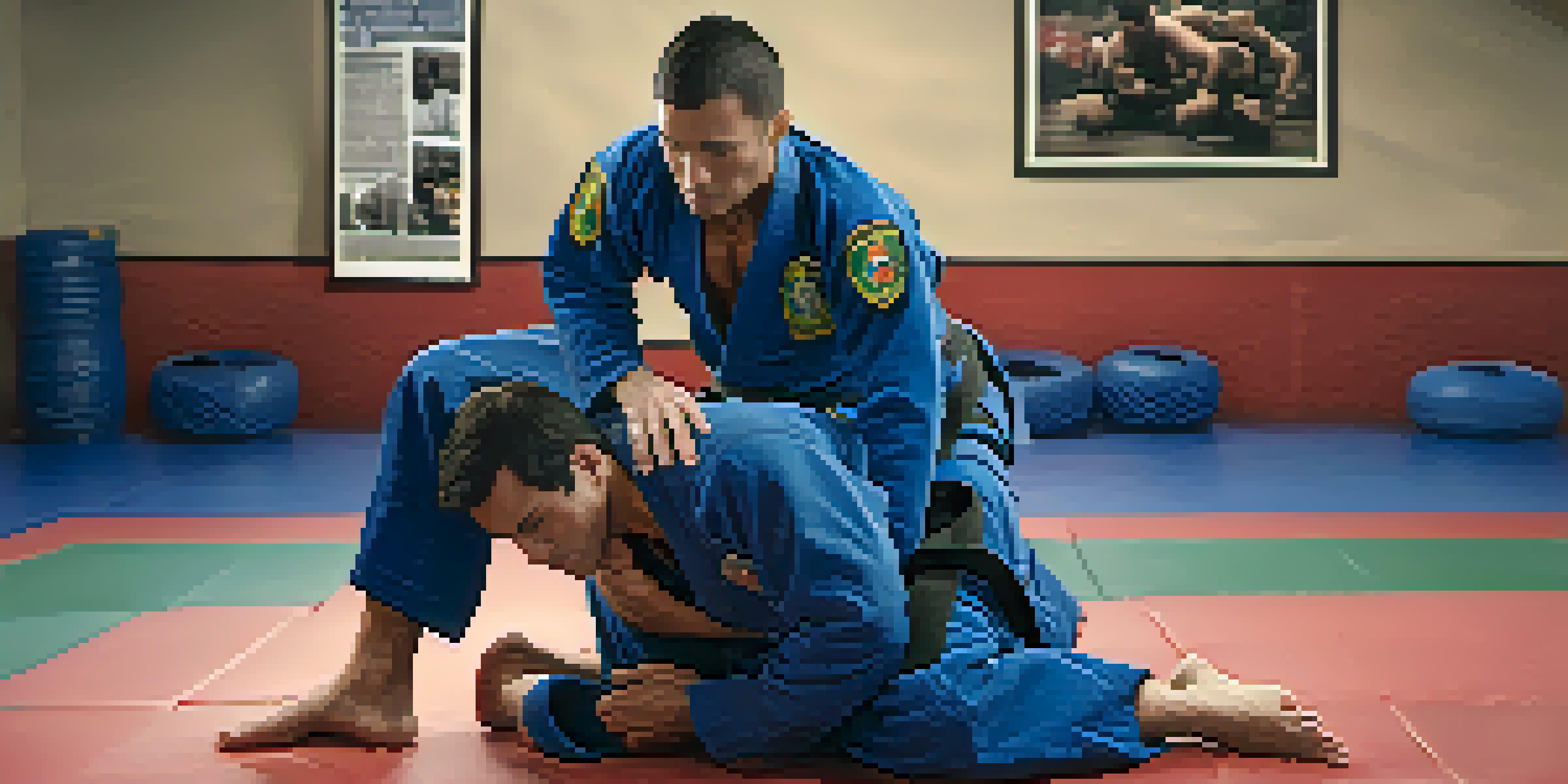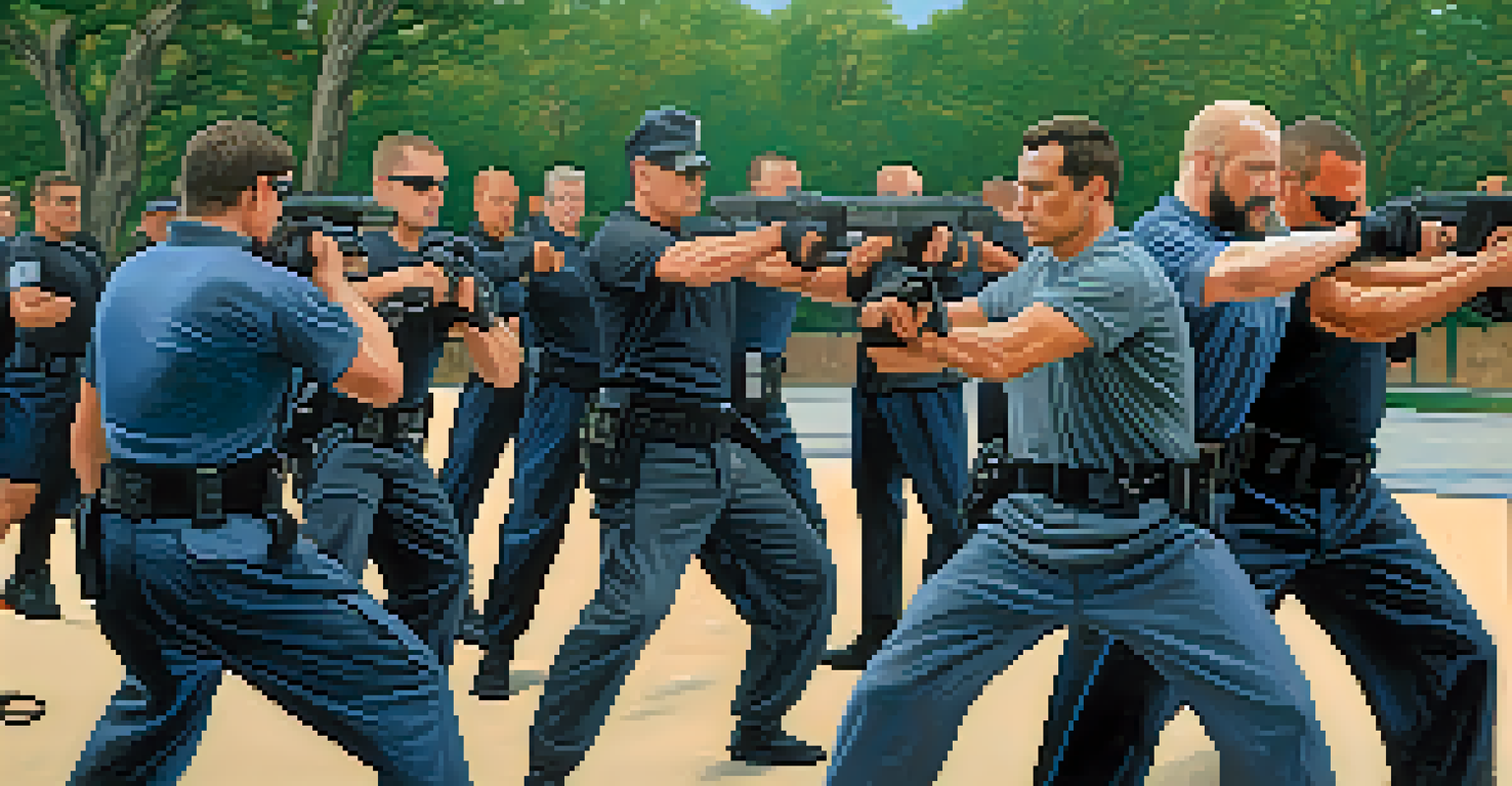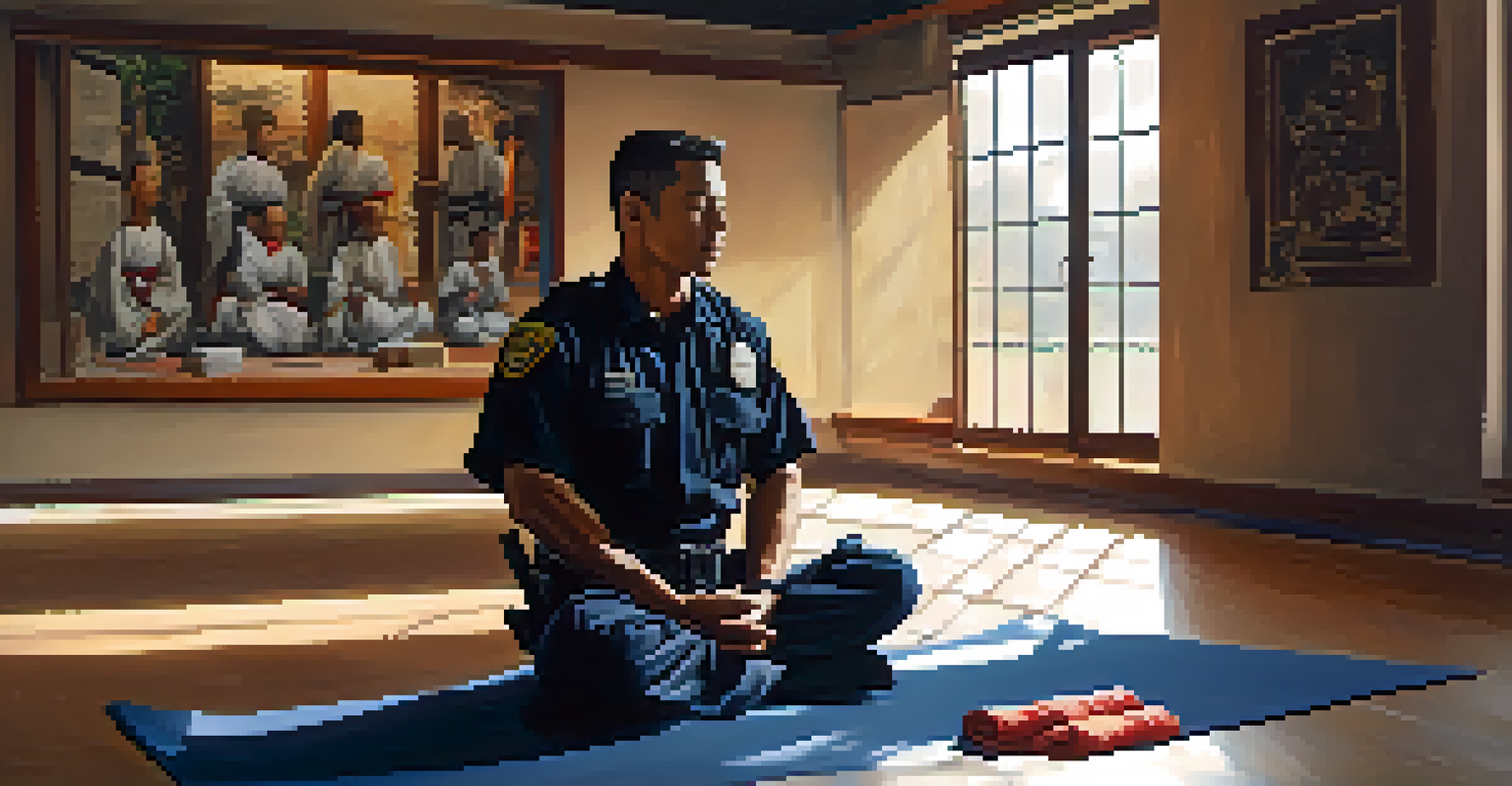Physical Fitness in Law Enforcement: The Martial Arts Approach

The Importance of Physical Fitness in Law Enforcement
Physical fitness is crucial for law enforcement officers due to the demanding nature of their job. Officers often face unpredictable situations that require quick thinking and physical prowess. Maintaining a high level of fitness not only helps in performing daily duties effectively but also plays a significant role in overall mental health and stress management.
Physical fitness is not only one of the most important keys to a healthy body, it is the basis of dynamic and creative intellectual activity.
Moreover, physical fitness can be a determining factor in an officer's ability to protect themselves and others. In confrontational scenarios, having the stamina and strength to handle a situation safely can make all the difference. Hence, departments increasingly prioritize fitness training as an essential component of their programs.
Incorporating physical fitness routines into daily life is not just beneficial for individual officers but also enhances team dynamics. A physically fit team can work better together, fostering trust and cooperation, which are vital in high-stress environments.
How Martial Arts Enhance Physical Fitness
Martial arts training provides a comprehensive approach to physical fitness, combining strength, agility, and cardiovascular conditioning. Techniques such as striking, grappling, and self-defense drills offer a full-body workout that can improve an officer's strength and endurance. Moreover, the variety in training keeps it engaging, making it easier for officers to stay committed to their fitness goals.

Beyond physical benefits, martial arts also teach discipline and focus, which are essential traits for law enforcement. Practicing martial arts requires mental acuity and strategic thinking, helping officers sharpen their decision-making skills under pressure. This mental training is just as important as the physical aspect, ensuring that officers are prepared for any situation.
Fitness is Essential for Officers
Physical fitness is critical for law enforcement officers, impacting their ability to handle unpredictable situations and manage stress.
Additionally, martial arts foster a sense of community and camaraderie among practitioners. Training together builds strong bonds, which is invaluable within law enforcement teams, where trust is paramount. This supportive environment not only encourages members to push their limits but also creates a culture of fitness and health.
Popular Martial Arts Disciplines for Officers
Several martial arts disciplines are particularly beneficial for law enforcement officers, each offering unique advantages. Brazilian Jiu-Jitsu, for example, emphasizes ground control and self-defense techniques, which are practical in real-life confrontations. Its focus on leverage and technique allows officers to subdue suspects without relying solely on brute strength.
The more you sweat in training, the less you bleed in combat.
Another popular choice is Krav Maga, which is known for its efficiency in self-defense situations. This martial art incorporates techniques from various disciplines, making it adaptable for different scenarios officers may encounter. The training often includes realistic simulations, which prepares officers for high-stress situations they might face on the job.
Additionally, Muay Thai is effective for developing striking skills and overall conditioning. This discipline enhances an officer's ability to defend themselves while also improving cardiovascular fitness. The combination of these martial arts creates a well-rounded training regimen that equips officers with essential skills for their demanding roles.
Mental Benefits of Martial Arts Training
The mental benefits of martial arts training are just as significant as the physical ones. Engaging in martial arts helps officers develop greater focus and concentration, which can directly translate to improved performance in their duties. The mental discipline required in martial arts encourages officers to remain calm and composed in high-pressure situations.
Furthermore, martial arts training can serve as a powerful stress relief outlet. The physical exertion involved helps release endorphins, which are natural mood lifters. This aspect is especially vital in law enforcement, where officers often deal with traumatic situations that can take a toll on mental health.
Martial Arts Boost Physical Skills
Incorporating martial arts into training enhances officers' strength, agility, and mental discipline, making them better prepared for their roles.
Additionally, martial arts fosters a mindset of continuous learning and adaptability. Officers learn to analyze their surroundings and adjust their tactics accordingly, skills that are crucial in the ever-changing landscape of law enforcement. This adaptability not only enhances their performance but also contributes to their personal growth.
Incorporating Martial Arts into Training Programs
Law enforcement agencies around the world are increasingly recognizing the value of incorporating martial arts into their training programs. By integrating these disciplines into physical fitness regimens, departments can create a more comprehensive training experience. This approach not only improves physical capabilities but also enhances teamwork and communication among officers.
When developing training programs, agencies can collaborate with local martial arts schools or hire experienced instructors to provide specialized training. This partnership can help ensure that the training is relevant and effective, offering officers the opportunity to learn from seasoned practitioners. Additionally, ongoing workshops can keep the training fresh and engaging.
Moreover, incorporating martial arts can also promote a culture of wellness within the department. By prioritizing fitness and health, agencies can reduce officer burnout and absenteeism, ultimately benefiting the community they serve. A fit and healthy police force is better equipped to handle the challenges of their job.
Success Stories from Law Enforcement Agencies
Several law enforcement agencies have successfully integrated martial arts training into their fitness programs, yielding impressive results. For instance, in some police departments, officers who practiced Brazilian Jiu-Jitsu reported increased confidence in handling physical confrontations. This newfound confidence not only improved their performance but also contributed to a more peaceful resolution of conflicts.
Another success story comes from agencies that adopted Krav Maga training. Officers who participated in these programs noted a significant improvement in their ability to respond to threats effectively. This training not only prepared them physically but also mentally, boosting their readiness for potentially dangerous situations.
Community and Well-being Matters
Integrating martial arts fosters teamwork and promotes a culture of wellness within law enforcement, benefiting both officers and the communities they serve.
These examples highlight that martial arts training can lead to positive outcomes, both for individual officers and the department as a whole. By investing in the physical and mental well-being of their officers, agencies foster a safer environment for both their staff and the communities they protect.
Conclusion: The Future of Fitness in Law Enforcement
As the landscape of law enforcement continues to evolve, the importance of physical fitness cannot be overstated. The martial arts approach offers a unique and effective way to enhance officers' physical capabilities while also addressing their mental health needs. By embracing these disciplines, agencies can ensure their officers are better prepared for the challenges ahead.
Looking forward, more departments are likely to adopt martial arts training as a staple in their fitness programs. This shift not only promotes a culture of health and wellness but also strengthens the bond between officers, creating a supportive and resilient team. As fitness becomes a priority, the overall effectiveness of law enforcement will improve.

Ultimately, the integration of martial arts into law enforcement training represents a proactive step towards a healthier, more capable police force. By investing in their officers' fitness, agencies are investing in the safety and well-being of their communities, paving the way for a brighter future.